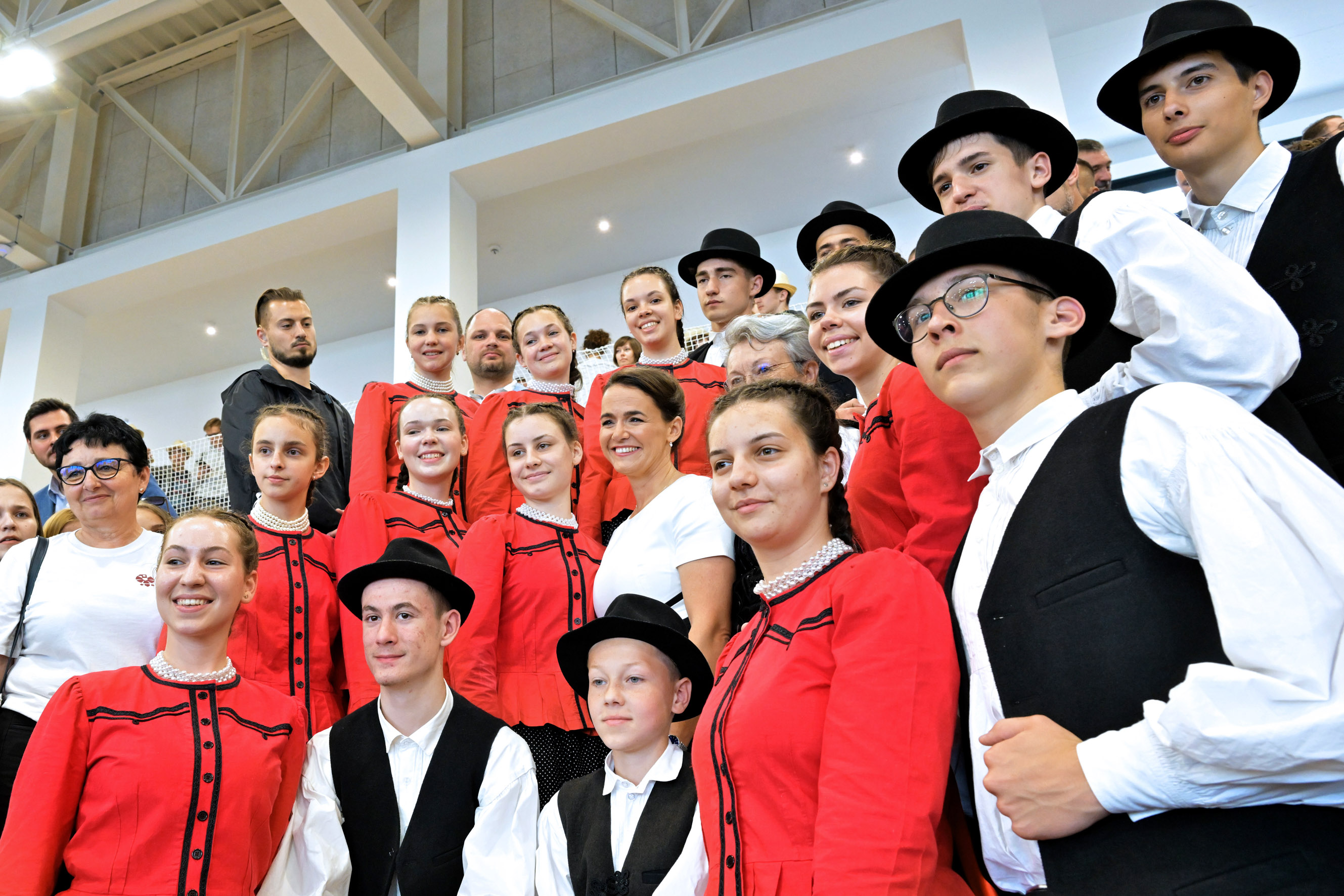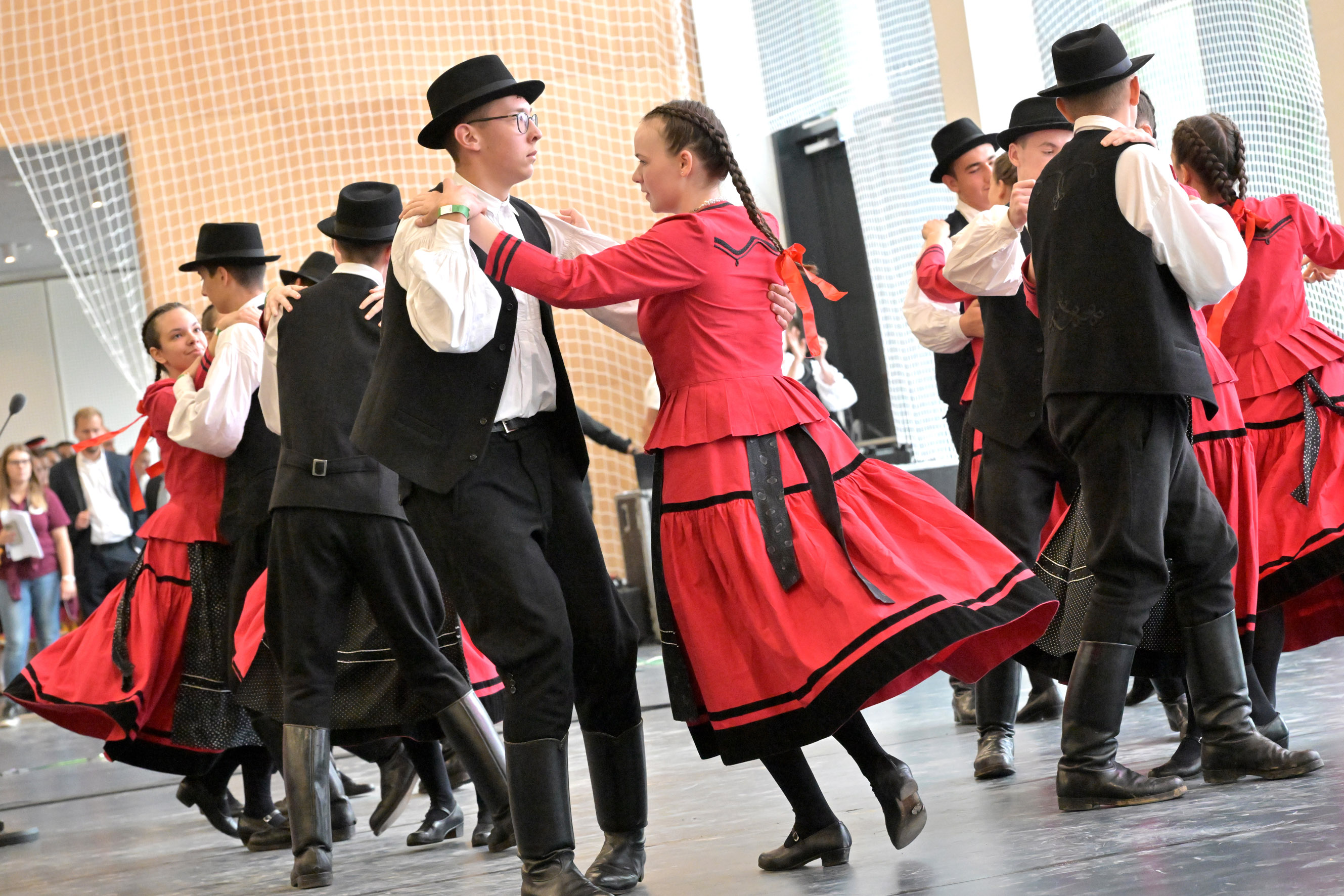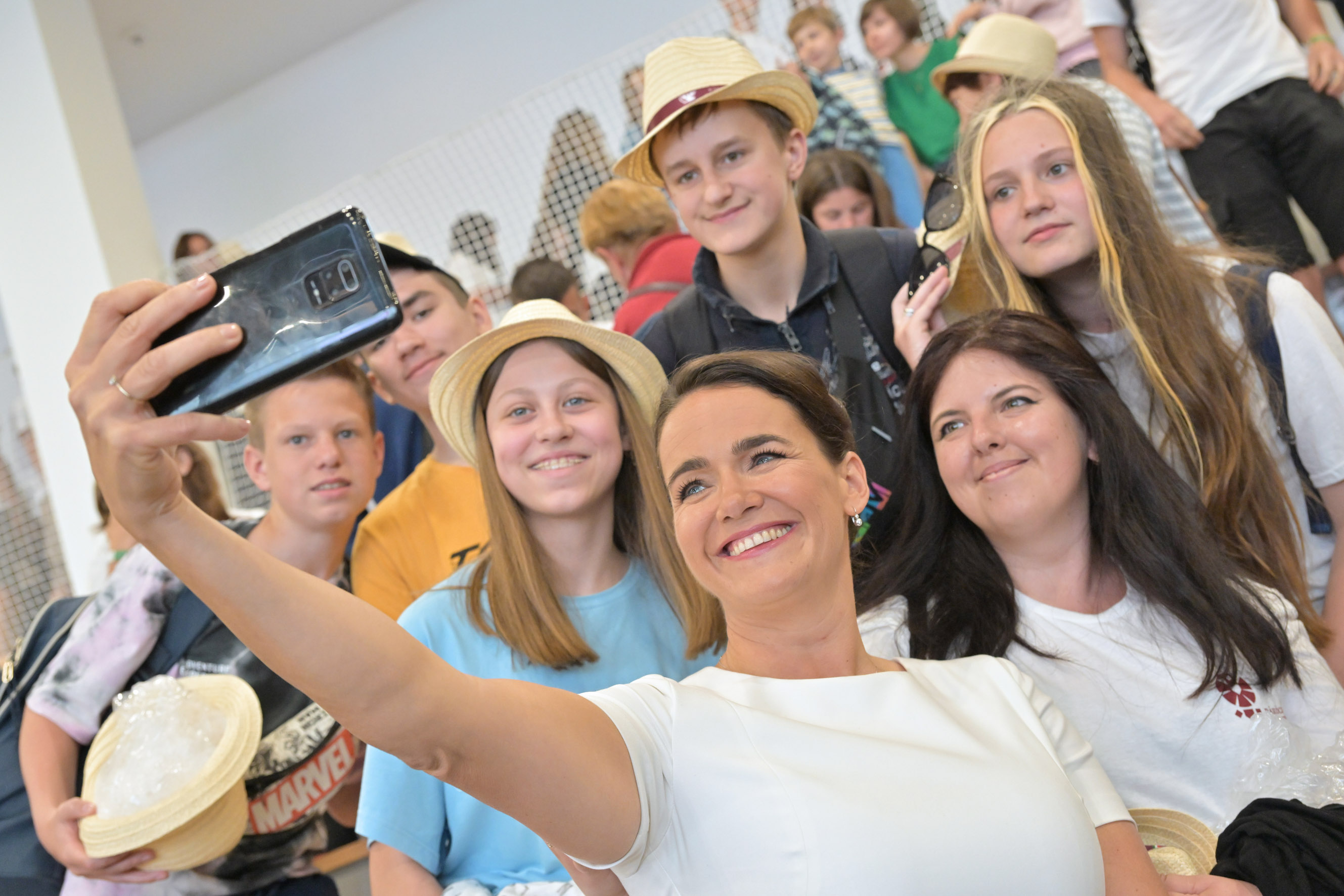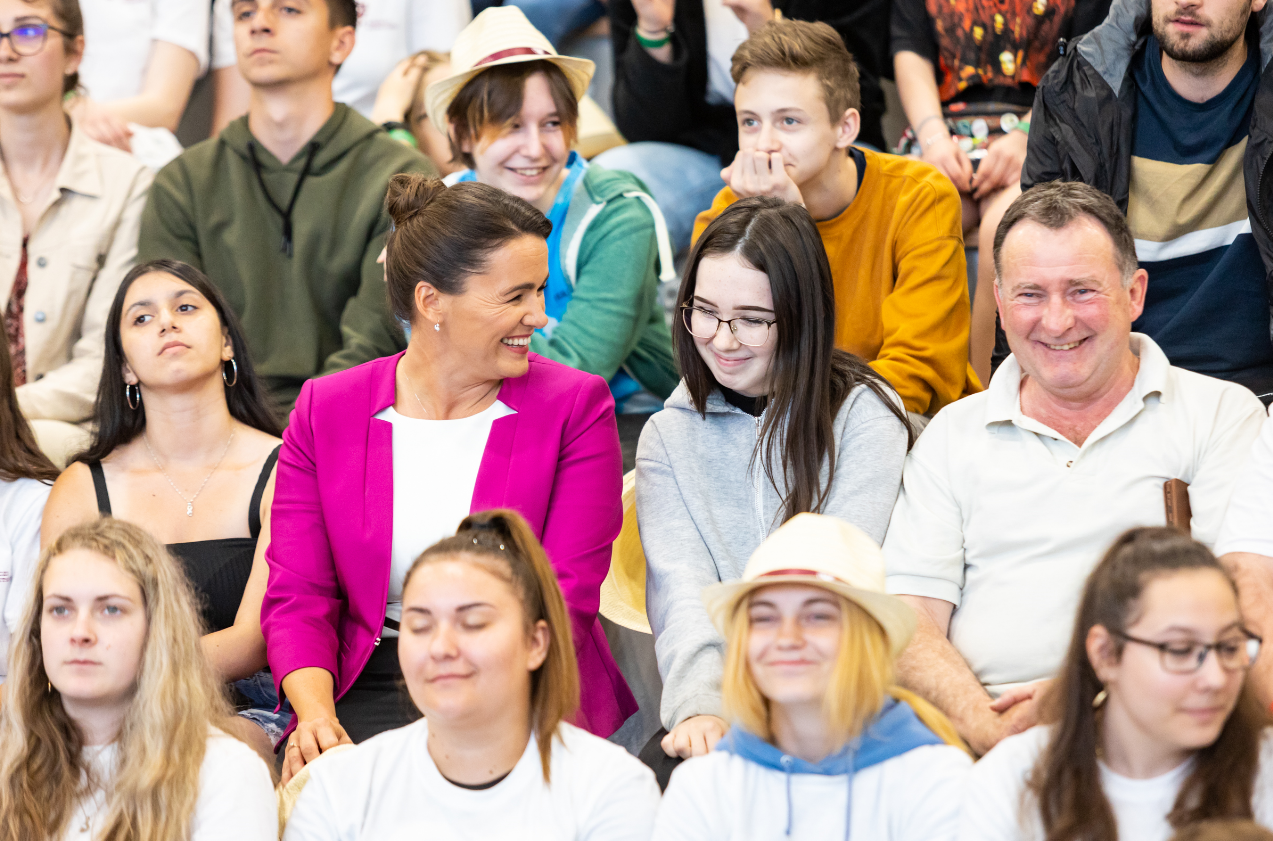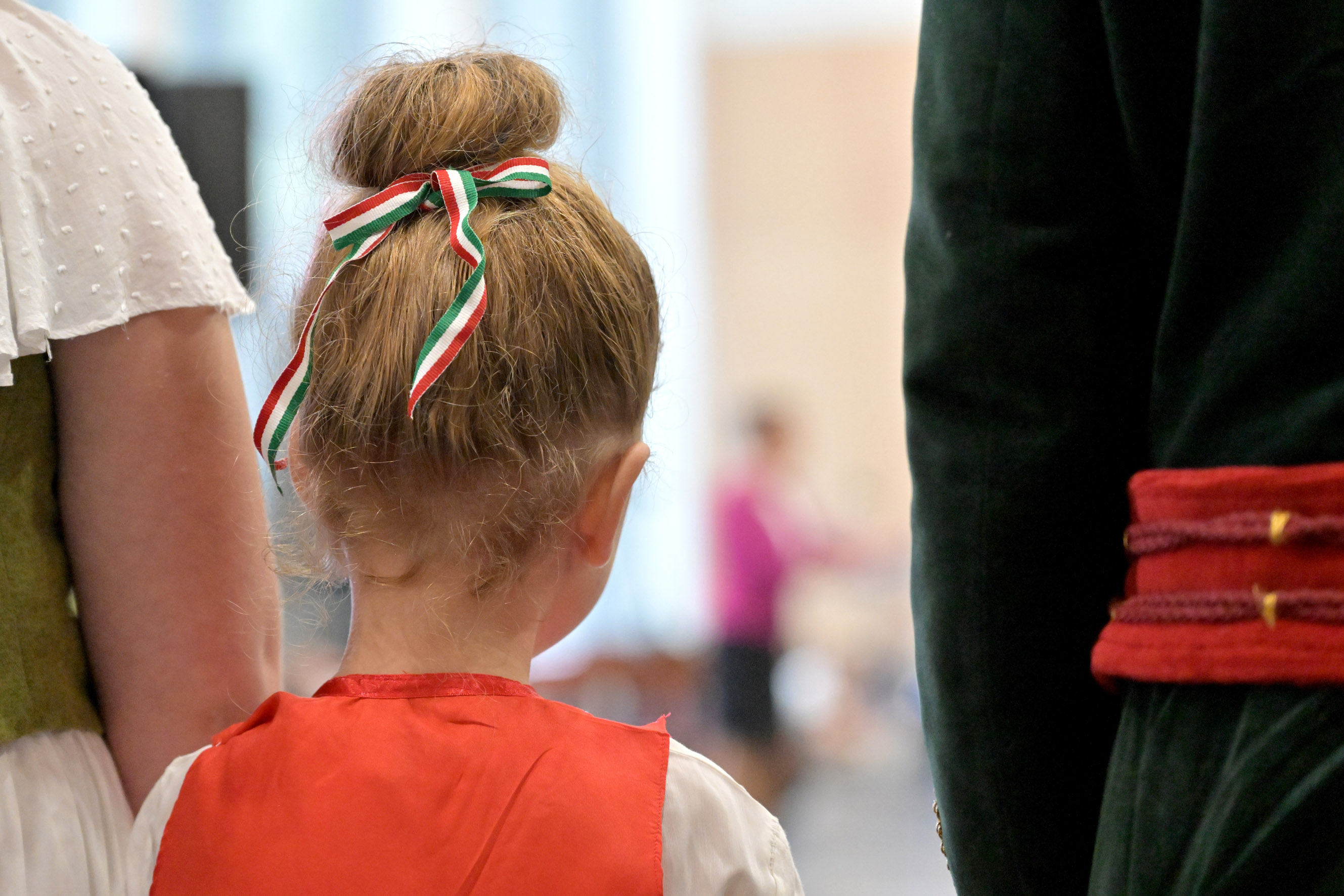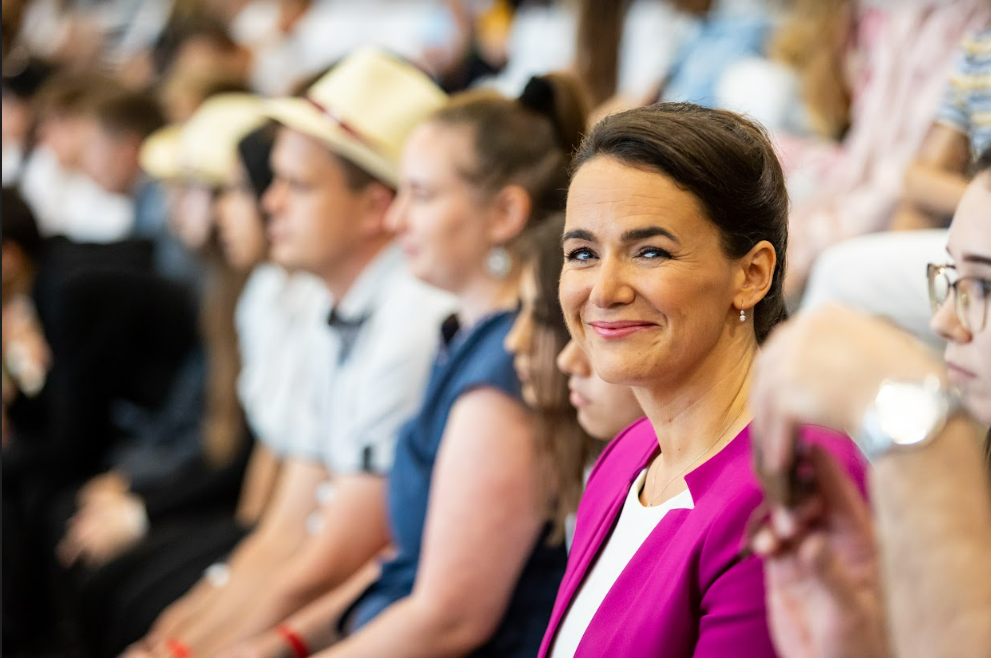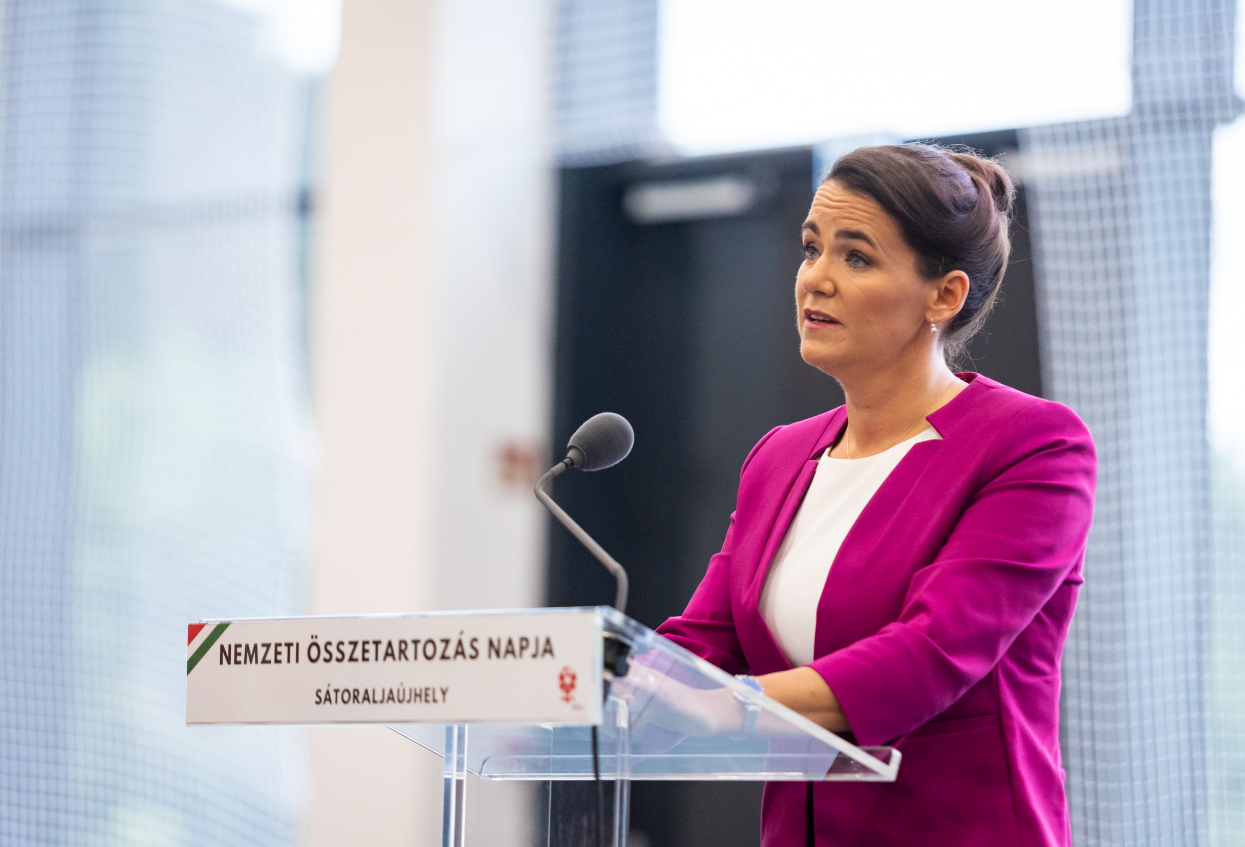Day of National Unity (Sátoraljaújhely, 4 June, 2022)
"What does being Hungarian mean to you? It's like asking a fish what water means to it." This is how Professor Mihály Csíkszentmihályi answered this question.
Dear Celebrating Audience! Dear young people from Transylvania, the Highlands, the Southland, Transcarpathia and Hungary!
Many of us would answer, perhaps many of you would answer this question in the same way. What does being Hungarian mean to you? It is like asking a fish what water means to it. Because how do you put into words what it means to be Hungarian for us? How can we express the obvious in words?
Today, on the Day of National Unity, we do not mourn our losses, but celebrate our riches. This is true even if it is not as clear to everyone as it is to you and to us: there is no difference between Hungarians living across the border and Hungarians living within the border. A Hungarian is a Hungarian, period.
I have come here today to Sátoraljaújhely, to the camp of the Rákóczi Alliance, to ask the same question in your company: what does national unity mean to us today? What does our Hungarian identity mean to us today? Actually, I live my everyday life among you, with you, with secondary school students, since two of our three children are in secondary school, and the third is about to become a secondary school student. We are surrounded by teenage children at home, so please allow me this informal tone. We actually meet every day. When I said yes when we got married 20 years ago, I didn't know that I will have to repeat this yes several times in my life. Yes, you have to say yes to each other every day in a marriage. I will also tell you that sometimes saying yes is not so easy. It is not my husband, for whom it is not easy, of course, but for me, but saying yes is not something we have to say once in our lives, but every day.
It is the same with our Hungarianness. Being Hungarian is a choice. The fact that I am Hungarian, the fact that we are Hungarians, is more than the fact that we were born Hungarian. Every day we have to say yes to being Hungarian. We would like more and more young people in Hungary to dare to say yes to each other. If more and more young people felt that they were brave enough to say yes to life together, if more and more of them dared to get married and start a family. It is good to see that this is now the case, as twice as many people are getting married in Hungary today than ten years ago. We would like this to be the case for Hungarianness too, not just for marriage. We would like to see more and more young people daring to say yes to being Hungarian. We would like to see more and more people daring to say yes to their Hungarianness every day. We hope to see more and more people who want to be Hungarian. And for this, as for saying yes in marriage, we need courage. Courage is needed in Nagydobrony (Velyka Dobron, Ukraine), in Gyergyószentmiklós (Gheorgheni, Romania), in Kassa (Košice, Slovakia) or Topolya (Bačka Topola, Serbia), but courage is also needed in Sárospatak, Debrecen and Budapest. I saw this courage when I was in Transylvania two weeks ago. I experienced this courage when we were in Gyulafehérvár (Alba Iulia, Romania), next to the newly inaugurated Bethlen statue, and then at the ceremony on the Day of Reformed Unity, where three thousand Hungarians sang the National Anthem together. In Gyergyószentmiklós (Gheorgheni, Romania) in Gyulafehérvár (Alba Iulia, Romania), in the diaspora, in the presence and support of the Romanian mayor. But I also saw this courage in Magyarlapád (Lopadea Nouă, Romania) at the consecration of the church. We consecrated 10 churches in Transylvania at the same time. Then, in the church in Magyarlapád (Lopadea Nouă, Romania) from the youngest to the oldest, the local costume was worn with pride, with natural grace. Dancing the Hungarian dances and singing the Hungarian songs are natural to the people in Magyarlapád (Lopadea Nouă, Romania) and hosting guests is natural, too. It's natural to kill a pig and have a big party on such an occasion. Not for us, not for the cameras, but for themselves. Because they owe it to their ancestors. It's about honouring your ancestors and taking responsibility for your grandchildren.
But I also experienced the same courage in Magyarvalkó (Văleni, Romania) when I met the young pastor, his wife and their three small children. The couple cares for a tiny congregation, and they do not only care for it and hold it together, but also enrich it. Where even the five-year-old girl was singing the second and third verses of the Reformed hymns by heart. This is the courage I learn from you, and this is the courage we can learn from them together. And now, 102 years after the Trianon Treaty, when we are asked - and we are asked - what our job is, how we can preserve our Hungarianness, what we must do, we can answer that our job is to know it, preserve it and enrich it.
This is also what the Village Museum, the Szentendre Village Museum is about, where we have just recently inaugurated the Transylvania Region Exhibit. It is more than a museum. The point is not that we rescued the treasures of Transylvanian culture from Transylvania, brought them here and present them in Szentendre, in the Danube Bend in Hungary. The point is a process of grafting, because we want to enrich the treasures of Hungarian culture, and the Village Museum in Szentendre is a nursery of Hungarian culture, where we will continue to enrich its treasures.
This task, this courage and this guarding, enrichment and knowledge is also the work, the service that the Rákóczi Association has been carrying out for three decades. Not only by organising camps and its many programmes for young people, or by the fact that this facility, this wonderful meeting place could be established here, but also by remembering that it is from these meetings that real enrichment will come. Here I would like to commemorate József Halzl, Uncle Józsi Halzl, whose memory no one can forget, and to whom we owe our thanks for having looked after the work of the Rákóczi Association for so long.
We cannot fight the battles of our great-grandparents and grandparents, just as we cannot fight the battles of our children and grandchildren. It is our duty to know, to preserve and to enrich. It helps if we get together often. The more we get together, the more we see each other, the more we can look each other in the eye, the better we know and understand each other. And if we Hungarians are getting closer to knowing and understanding each other, it is good if others understand us better too. That's why I've already been to Warsaw, that's why I was in Berlin yesterday, and that's why I'm going to Prague next week, and then to Bucharest. To help Hungarians be understood. Today is a holiday, a day of national unity. We celebrate the richness of our nation. Yet, despite the celebration, today is overshadowed by the war raging in our neighbourhood. This war, following the South Slavic crisis and the South Slavic war, is now proving in Ukraine that if there is a war in our neighbourhood, then Hungarians can also be impacted. The Hungarians living there are also at risk. This places an additional responsibility on us. That is why we must help them, that is why we must give them strength, that is why we must look after them, and that is why we must do everything we can to ensure that peace is brought to Ukraine as soon as possible. I would especially like to welcome the young people who have come to us from Transcarpathia. Thank you for being here, thank you for being with us, and we wish you much strength.
Dear Celebrating Audience!
We promise to preserve our nation’s intellectual and spiritual unity, torn apart in the storms of the last century." So says a sentence of our National Creed. It is a promise that binds us all. It binds you, it binds me, it binds us, and it binds those who come after us, our children and our grandchildren. Let us make this promise come true, let us fulfil this promise, let us preserve the spiritual and intellectual unity of our nation, torn apart in the storms of the last century. This is our task.
Now that we are in a Rákóczi estate, we can remember the Prince, whose flag bore the phrase: Cum Deo pro Patria et Libertate.I would like to highlight "Cum Deo", because we always need the presence and support of God, and so we need Him today, because His is the kingdom, the power and the glory.
Thank you for listening to me!


